Heino Mandri
Nacimiento : 1922-09-11, Kohtla-Järve, Estonia
Muerte : 1990-12-03
Historia
Heino Mandri (11 September 1922 – 3 December 1990) was an Estonian film and stage actor, designated People's Artist of the Estonian SSR (1986).
Heino Mandri was born in the independent Republic of Estonia. He studied acting at Tallinn State Conservatory (now, the Estonian Academy of Music and Theatre) and graduated in 1946, when post-war Estonia was part of the Soviet Union. At that time Heino Mandri was accused of anti-Soviet activities and sentenced to imprisonment and hard labor in Gulag. From 1948 to 1954 he served the sentence in the Viatlag prison camp, Lesnoy, Kirov Oblast in Northern Russia.
In 1954, Heino Mandri returned from the Viatlag prison camp to Estonian Soviet Socialist Republic. At that time he underwent Soviet censorship procedures before he was permitted to resume his acting career under the Soviet administration.

(archive footage)
Veteran actors from the 3 Baltic countries - Estonia, Latvia and Lithuania - gather at a castle in Latvia to receive awards for their roles as Nazi villains in propagandist Soviet war films. They reminisce about the films that made them famous throughout the USSR, but also stigmatized the Baltic countries as Nazi sympathizers in the eyes of many Russians - a misconception that is nowadays exploited by the Russian media, desperate to label the Baltic countries as a fascist haven.

Mart
Rich nephews and beautiful girls can not get married, especially when neither of them have actually seen each other.

Aslaksen

Mart's Father
The film is about one of the greatest social hot spots in Estonia during the Soviet times when apartments were distributed by the state, telling the story of a real estate agent and a homeless man. Mass immigration in 1944-1988 led to demographic conflict. Free apartments were mainly given to immigrants despite the fact that local people badly needed places of residence as well. They are not tourists, they live here, but they haven't got a home.

The movie travels through the 20th century by monitoring a steam boiler. We see the history of Estonia through life, agricultural work and people at different times.
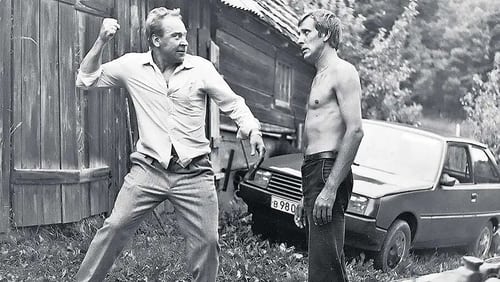
Uncle Raul
Five people who have recently reached their middle-ages are driving through Estonia to visit a famous witch-therapist to get rid of their problems. But isn't it just weariness of life that bothers the people whose life has gone into a deep routine ? The somber-funny road movie gives a good review of life, people and daily problems in Estonia in the end of the Soviet period.
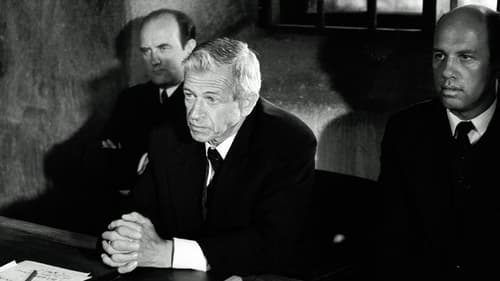
President of the Court Martial
Viktor Kingissepp has been the underground head of the Communist Party of Estonia for three years. He corresponds with Moscow, writes speeches for the members of the Communist Workers' Party and makes leaflets for the events of trade union. His purpose is to overthrow the Republic of Estonia since he does not believe in Estonian independence nor in any national ideals. Yet the clock keeps ticking, tuberculosis spreads rapidly, the world revolution is being postponed. What to do in order to make one's efforts work?
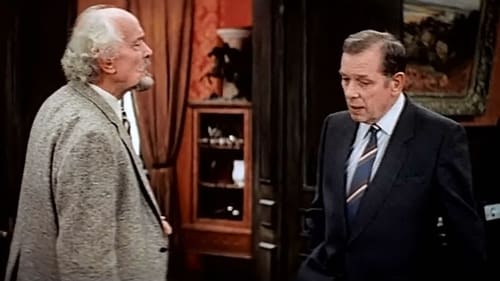
King
Operation "Resident", which lasted 15 years, is coming to an end. But the indestructible agent of "Nadezhda" has one important mission left. Agent Carl Brockmann, who intends to steal the work of Academician Nikolai Nesterov in the defense sector, has been abandoned in the USSR. KGB leadership asks Mikhail Tulyev to return to the Soviet Union to find the spy. Meanwhile, Brockmann recruits former fascist collaborator Mikhail Kutepov for involvement in a dangerous operation.

Warship Captain
Arabella is a daughter of the world's most terrifying pirate captain. She loves her father but also dreams about a life of a usual girl. One day a weird stranger is saved from the sea who will be the only friend of Arabella. At the same time a rival pirate called Raudpats plans to kidnap the girl. Will she be safe and can she ever live a normal life?
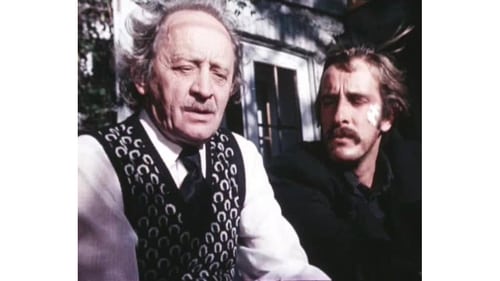
первый директор концерна (роль озвучивал Игорь Ефимов)

Abt, German Colonel
The film is set during World War II. After capturing the "trophy" Mercedes, a group of scouts, disguised as German officers commits a daring raid behind enemy lines (the 116th Motorized Division) on roads controlled by the enemy.

The story is about a woman, who has to heat up the company's sauna, because the bosses want to entertain a foreign visitor. The sauna is situated in a small village were her ex husband is from, and old aunt of his is still living there. So besides having to face the party her bosses are having she also has to face her past.

Judge

Debora and Silver get into a serious car accident after a romantic night together. Silver escapes with a slight injury, but Debora's life is in danger and the doctors say there is no hope for her. Doctor Melts sees an opportunity in transplantation of dying Debora's kidneys to save the life of a professor who has a few weeks to live. However, the professor proposes a treatment for Debora that will exclude transplantation. The truth about the price of her life will change Debora's world.
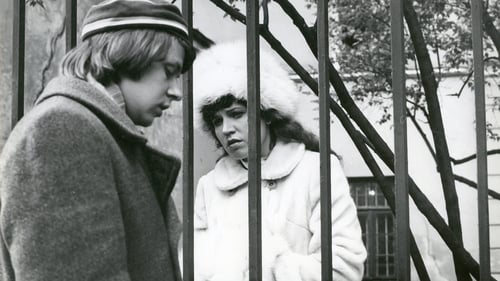
Timusk
Based on the second part of the pentalogy "Truth and Justice" by Anton H. Tammsaare.

Iurla
In 1921, the Cheka became aware that gold and jewelry were stolen from the treasury of Gokhran, and that a special organization was involved in transporting the stolen to Estonia. Scout Maksim Isayev is sent to this country. He establishes that the cipher of the Soviet embassy Olenetskaya works for the German resident Nolmar, with whom employees of Gokhran Kozlovskaya and an appraiser Yakov Shelekhes are associated. As a result of the provocation, Isayev was arrested. In the prison cell, he finds himself together with the famous Russian writer Nikandrov, who could not find himself in post-revolutionary Russia and went abroad. Released soon by the efforts of his comrades, Isayev continues the struggle for the fate of Nikandrov — for his return to his homeland.
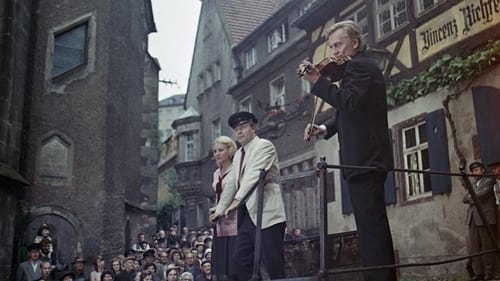
When Estonian violinist Eduard Sõrmus starts his concert tours in Europe, he is convinced that the world revolution is about to begin. His mission as a Red Violinist is to call the proletariat around the world to join with the revolution. It is only two things - music and revolution - that Eduard has dedicated himself to. His audience is enchanted by his performance and ignited by his ideas. With this knowledge, he travels Europe between the two world wars, accompanied by his faithful friends, his audience's admiration and the hostility of the authorities.

Narrator
Portrait film about Šarl Piel, a brigadier of builders who is demanding a lot both from himself and others and who is able to overcome the difficulties encountered at work.

Forester
Based on the novel “Ukuaru” by Veera Saar, a story about Minna, a young woman who has to make choices in the name of her true love, home, and the continuation of life.

Accordion
Sailing to South America, the sailing ship "Fortuna" gets stuck in a calm in the middle of the Atlantic. Heat and thirst drive the team crazy, knives are already flashing and the wind is being conjured in the darkness of the night. Captain Kihnu Jõnn has to tame desperate men and trade with heavenly forces in order to bring the ship's crew to the destination port, who want to leave him there.

Taavi is worried about the lack of wind that won't let him do his daily job as a fisherman. But he is definitely not the guy who would just sit and wait for better days to arrive.

Head Referee (voice)

Topff
The story of Balthasar Russow, an Estonian pastor from the 16th century, his life and life's work - writing The Chronicle of Livonia.
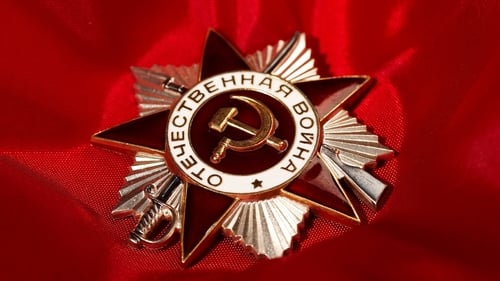
Epopeya bélica contada en cinco partes que, en su época, se consideró como la respuesta soviética a la película norteamericana "El día más largo" (The Longest Day, 1962), producción de la Fox que narraba el desembarco de las tropas aliadas en Normandía. "Liberation" cubre las victorias más importantes del ejército soviético en la II Guerra Mundial, incluyendo la batalla de Kursk y la batalla de Berlín, el asalto al Reichstag, y la colocación de la bandera roja sobre sus ruinas. Existe también una versión donde la historia se divide en cinco películas individuales.
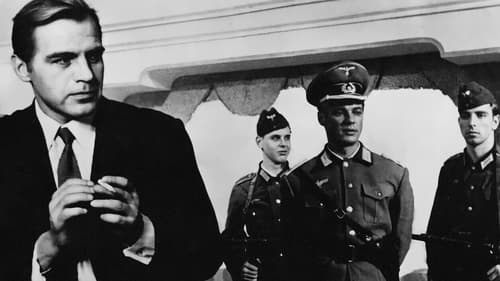
Jundt
At the end of 1943, during the occupation in Odessa, a new specialist Kraft arrives at the shipyard and soon becomes a chief engineer. It never occurred to anyone that a Soviet intelligence officer was hiding under the guise of a leader showing official zeal. At the decisive moment, when the victorious offensive of the Soviet troops forces the German-Romanian invaders to leave Odessa, on the instructions of the Center, Kraft leaves with them for further work behind enemy lines.

Soviet spy Ladeynikov learns that in one of the pharmaceutical centers in a small resort town works a former German war criminal Dr. Hass, who is finishing the creation of a deadly chemical gas RH development of which he began during WW2 experimenting on war prisoners. Since Ladeynikov doesn't know Dr. Hass's appearance, Soviet intelligence recruits an actor, Ivan Savushkin, who during the war escaped from a prison camp where Hass was testing his gas. Together they must identify and stop him before he finishes and unleashes his weapon of mass destruction.

Second world war. In one of the German intelligence schools are preparing sabotage groups of Russian prisoners of war for casting in the USSR. Among them — Nikolai Verezhnikov, who, not being a professional scout, was able to impose their own game and interfere with the plans of the enemy…

Põdrus
After a long night with his old war buddies, Andres Lapeteus regains consciousness in the hospital. How has confusion, bewilderment and alienation developed between these men who once fought together side by side? Is this the inevitable result of the Stalinist regime, the influence of his social climber wife, or the effect of his personal cowardliness and conformism? What happened to Andres Lapeteus?

Trossi
It's 1940 - the first summer of the Soviet occupation on the Estonian island Saaremaa. Teenagers stepping in their lives have important decisions to make. Should they support the Soviet regime or join the resistance?

Standartenfuhrer
The Lark (en ruso : Жаворонок , romanizado : Zhavoronok ) es una película de guerra soviética de 1965 dirigida por Nikita Kurikhin y Leonid Menaker . Se inscribió en el Festival de Cine de Cannes de 1965 .
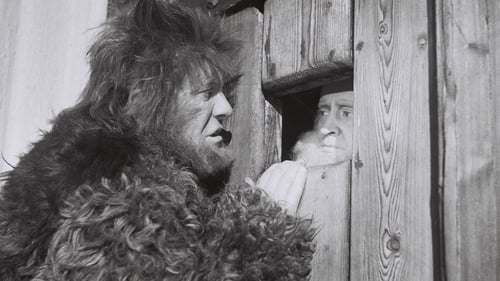
Pastor
The way Saint Peter explains it to the Devil who's knocking on Heaven's door to collect his share of souls: there will be no more souls, as God has come to doubt if humans are really meant to achieve salvation. If they aren't then how can they be punished posthumous and sent to Hell? There's only one way to make sure if sinning is the human nature, or is it that they simply don't want to better themselves - Devil himself must go down to Earth, in human form, and if he can achieve salvation then so can a human being... Based on A. H. Tammsaare's classic novel of the same name.

A man and a woman are trying to solve a problem that is crucial to their relationship, but their ideas and beliefs have a different vision.

Four Estonians who have escaped to Sweden during the war return to Soviet Estonia in the 1950s. The four saboteurs work for the Western Secret Service. Difficulties arise when they cross the border with an injured companion - the three have to decide what to do next.

















